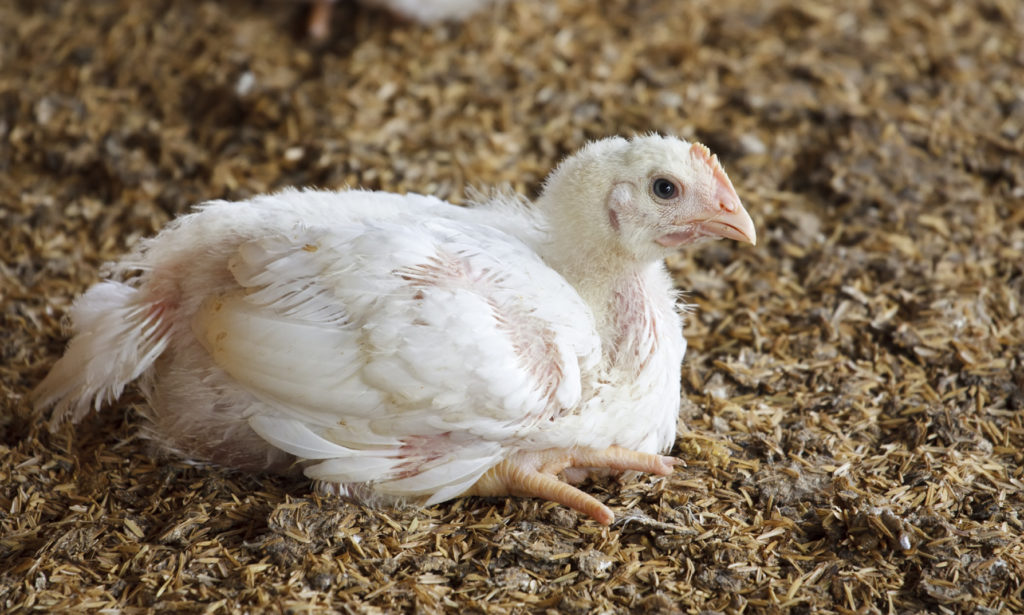Party for the Animals calls on European Commission for total ban on insecticide fipronil
During a debate on the fipronil scandal, Party for the Animals MEP Anja Hazekamp has called on the European Commission in Brussels to ban the insecticide fipronil, found in vast quantities of eggs, completely from European agriculture.
In the EU, fipronil cannot be used on animals destined for human consumption, but it is legally available and authorised for use in arable farming. “Fipronil is freely available in Europe, and can therefore easily be used for inappropriate ends, leading to contaminated eggs ending up on supermarket shelves and our plates. A total ban will be safer for human and animal health and the environment,” said Hazekamp.

A chicken in the poultry industry
Crude violation of EU rules
In addition, the Party for the Animals points out that there has been insufficient regard for the welfare of the hundreds of thousands of laying hens treated with fipronil, which were slaughtered in the Netherlands last month. According to Hazekamp, these killings were in violation of EU rules on the protection of animals, and therefore illegal. “These chickens were neither ill nor a threat to public health. Pain, suffering and injury were unnecessarily inflicted on chickens, which is at odds with European legislation. I would like to know how the European Commission is planning to avoid such practices in the future.”
To the Party for the Animals, the fipronil scandal is further proof that European rules for animal welfare and food safety are not complied with, and that there is hardly any monitoring. According to Hazekamp, the scandal has once again demonstrated the unsustainability of the Dutch agricultural system, but she expects the European Commission to “need many more scandals before coming to the same conclusion”.
Background
In July of this year, eggs tested in Belgium and the Netherlands were found to contain levels of the toxic insecticide fipronil. Soon after, eggs in other European countries also turned out to be contaminated. In addition, it came to light that some calves had been in contact with a similar pesticide, called amitraz. Many eggs and egg products were removed from supermarket shelves because they presented a public health risk. Following these scandals, the Party for the Animals called for the Dutch Lower House to return early from Summer recess for a debate on the subject. The Dutch government has launched an enquiry into the egg scandal.